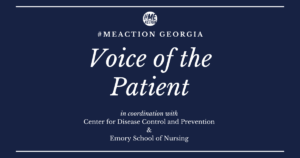Read about the talk that stole the show at a recent ME/CFS conference in Simon McGrath’s two-part blog. Here’s Part 1 …
Last November, science star Professor George Davey Smith gave a talk at the UK CFS/ME Research Collaborative (CMRC) Annual Science Conference that focused on bigger, better, smarter approaches to research.
Since then, Davey Smith has said he’s keen to play a role in the largest set of studies ever proposed for ME/CFS: Professor Stephen Holgate’s Grand Challenge, which is now moving forward.
The plans are for a ‘big data’ study using a huge cohort that could be 10,000 patients strong. The total budget for this project is likely to be well over £5 million.
While not all of the points he made in his November talk are currently applicable to ME/CFS research, Davey Smith outlined the power and pitfalls of the types of genomics and other big-data approaches that the Grand Challenge is now planning to apply to ME/CFS research.
He showed how, surprisingly, large-scale genetic data can also be used to study non-genetic potential causes of illness, such as the link between vitamins and heart disease. Throughout, he emphasised how ingenious and rigorous approaches can tease out the true causes of disease from misleading, empty clues. His remarks also showed the mind of a top-notch scientist at work, one who has been playing in the biggest of scientific sandboxes.
Davey Smith doesn’t have a high public profile, but he’s published over one thousand studies, and has a huge reputation among fellow scientists. Few researchers are as widely cited by their peers: he has a citation h-index of 150, which ranks him alongside the top life scientists in the world. Much of his work has focused on better ways of doing science, and he’s also played a major role in many large population studies.
Davey Smith’s pioneering approaches and studies have done a great deal to sort out what’s good advice to help you live longer and in better health (sadly even low-level alcohol drinking is harmful) and what’s not (certain vitamins can reduce the risk of heart problems).
He doesn’t know the disease – but he does know good research
He began his CMRC talk by showing a photo of a boy in a dunce’s hat and declaring, ‘I know nothing about this illness’. But he does know about genomics research, and on that basis, he started off in a typical style for him: breaking a few eggs in pursuit of the right answer.
He showed four recent ME/CFS studies identifying links between differences in some genes and the illness. Davey Smith was not impressed.
‘The statistical power [to detect a real effect] is literally zero’, he said. These studies were simply too small to show anything, and any apparent findings are effectively guaranteed to be false positives — that is, associations simply happening by chance.
‘ME/CFS gene studies today’, said Davey Smith, ‘appear much like other gene association studies a decade ago — hopelessly unreliable.’
Read more on Phoenix Rising …

#NotJustFatigue Video Series: Interview with Creator Elizabeth Ansell
Over the past year, the #NotJustFatigue website, created by Elizabeth Ansell, releases a 10-part, documentary style, short form video series on different aspects involved in living with ME. Titles of the videos include topics such as: You Have No Idea How Serious This Is, Nobody Believes ME, and It’s Not Hysteria: It’s Sexism. In these




